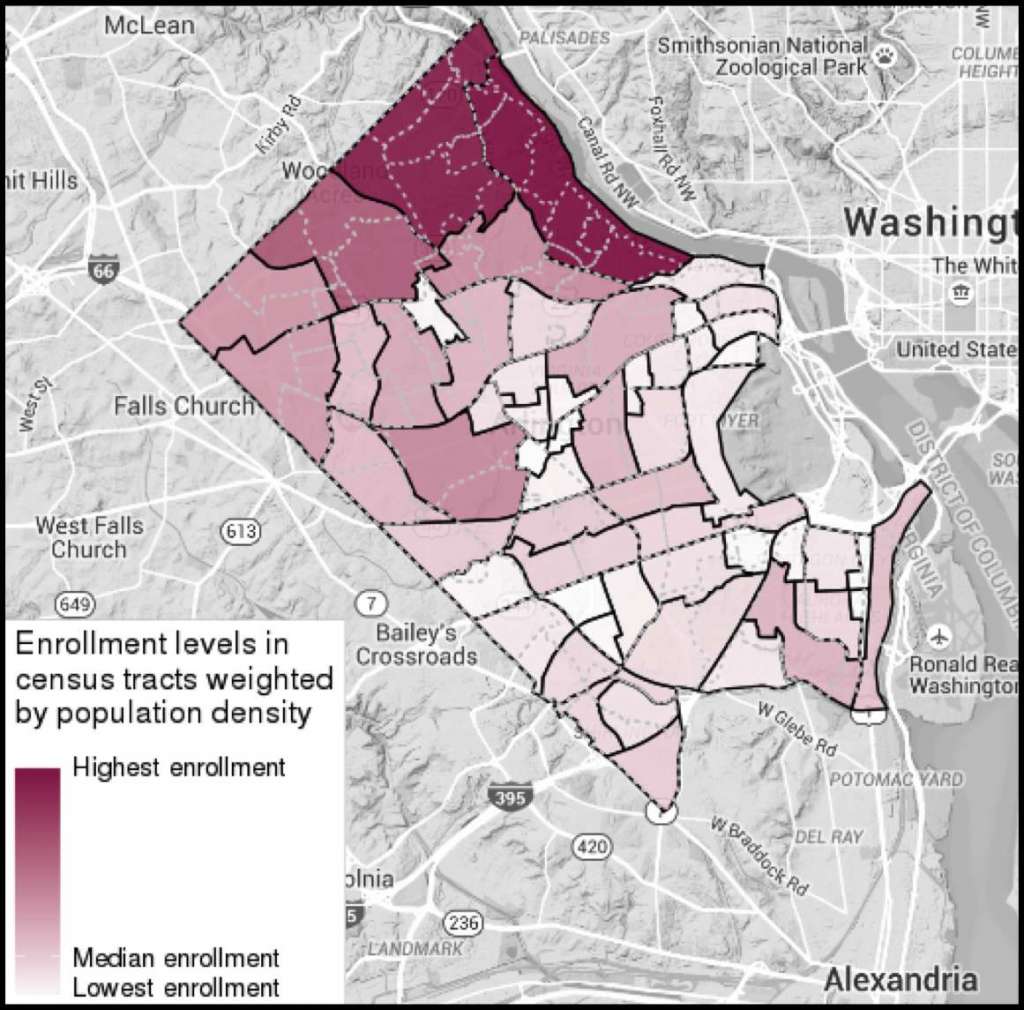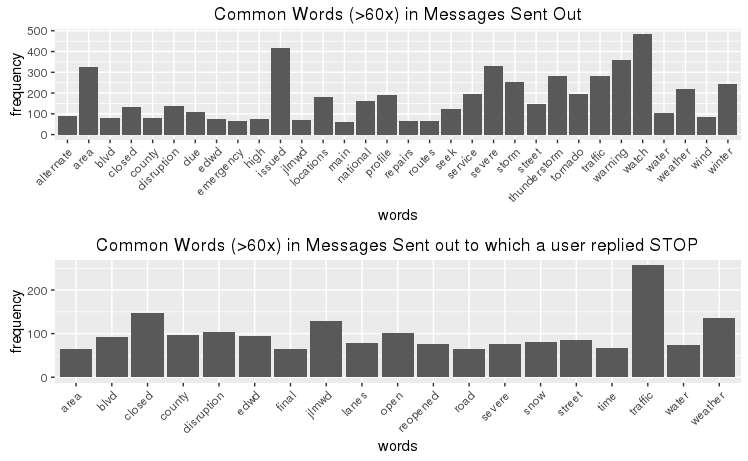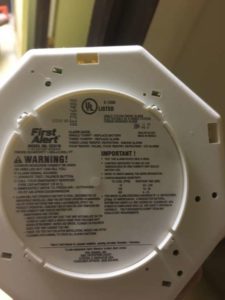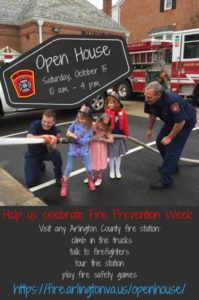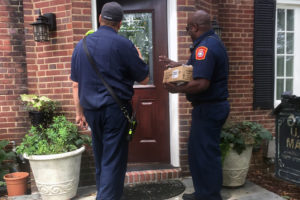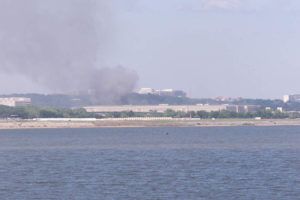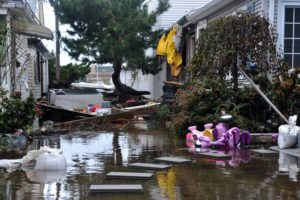This biweekly column is written and sponsored by the Arlington Office of Emergency Management.
A message with a cause
 This month, helping some of Arlington’s most important causes just got a lot easier. To kick off the “Season of Giving,” the Office of Emergency Management has launched a special “Subscribe and Serve” campaign. This month, when you register for Arlington Alert using the new “EZ” form, you can choose to support one of four local causes, and we’ll make a donation on your behalf. If you want to fight hunger, you can donate a can of food to the Arlington Food Assistance Center (AFAC). If you’re interested in helping to end homelessness, you can direct a pair of socks to the Arlington Street People’s Assistance Network (A-SPAN). Are animals your thing (and in Arlington, we know they are)? Then a can of pet food for the Animal Welfare League of Arlington (AWLA). Finally, if you’d like to help develop the next Picasso, you can donate art supplies to Arlington Public Schools (APS).
This month, helping some of Arlington’s most important causes just got a lot easier. To kick off the “Season of Giving,” the Office of Emergency Management has launched a special “Subscribe and Serve” campaign. This month, when you register for Arlington Alert using the new “EZ” form, you can choose to support one of four local causes, and we’ll make a donation on your behalf. If you want to fight hunger, you can donate a can of food to the Arlington Food Assistance Center (AFAC). If you’re interested in helping to end homelessness, you can direct a pair of socks to the Arlington Street People’s Assistance Network (A-SPAN). Are animals your thing (and in Arlington, we know they are)? Then a can of pet food for the Animal Welfare League of Arlington (AWLA). Finally, if you’d like to help develop the next Picasso, you can donate art supplies to Arlington Public Schools (APS).
A stronger community = a more resilient community
In emergency management, we know that it takes a “whole community” to truly make emergency preparedness work. AFAC, AWLA, A-SPAN and APS are some of our essential community partners for responding to and recovering from disasters. Let’s take a look at how their work creates a resilience for Arlington:
- Arlington Food Assistance Center: Not only does AFAC assist in providing critical nutrition for thousands of people in Arlington, they are also excellent logisticians. They know how to acquire, process and distribute food to large numbers of
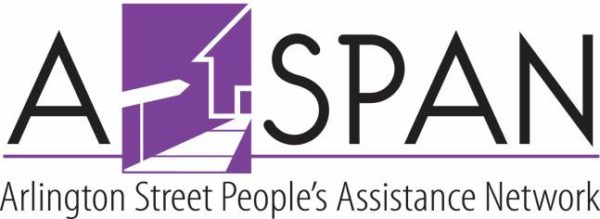 people — a critical skill for serving those who might be impacted by disaster.
people — a critical skill for serving those who might be impacted by disaster. - Arlington Street People’s Assistance Network: The homeless population is one of the most vulnerable — both during and after an emergency. By ensuring that these people’s basic needs are met, A-SPAN helps ensure that they don’t need to consume additional resources during an incident.

- Arlington Public Schools: Children are another vulnerable population, and APS helps ensure that they are supported in all aspects of their life. During emergencies, APS provides critical facilities — like gymnasiums and cafeterias — with generators in case we need to establish emergency shelters. Crayons are also an important part of an emergency kit for anyone with kids — easy, battery-free entertainment!

- Animal Welfare League of Arlington: You’ve heard us harp on it before, but pet preparedness is an important part of individual preparedness. After Hurricane Katrina, we learned that 44% of people did not evacuate for the storm because they refused to leave the pets behind. AWLA provides important services like microchipping (which aids in pet-family reunification after a disaster), as well as affordable vaccinations (which are a requirement in most emergency pet shelters). AWLA is the County’s main partner for opening and operating these shelters.
 These organizations are an important part of our community both before and after emergencies. Another important partner is the Arlington Community Federal Credit Union. They helped sponsor this campaign because they know how important partnership strengthens the community. Additionally, they provide financial services that are an essential part of emergency planning. Don’t forget to think about banking, lines of credit, and insurance as part of your own personal preparedness plan.
These organizations are an important part of our community both before and after emergencies. Another important partner is the Arlington Community Federal Credit Union. They helped sponsor this campaign because they know how important partnership strengthens the community. Additionally, they provide financial services that are an essential part of emergency planning. Don’t forget to think about banking, lines of credit, and insurance as part of your own personal preparedness plan.
Strength through partnership
Overall, communities that are strong before a disaster are typically strong after a disaster. Government agencies, non-profit organizations, and businesses and the partnerships between them create the network that creates that strength. Don’t forget that individuals are part of this coalition too- and don’t forget to subscribe and serve!





